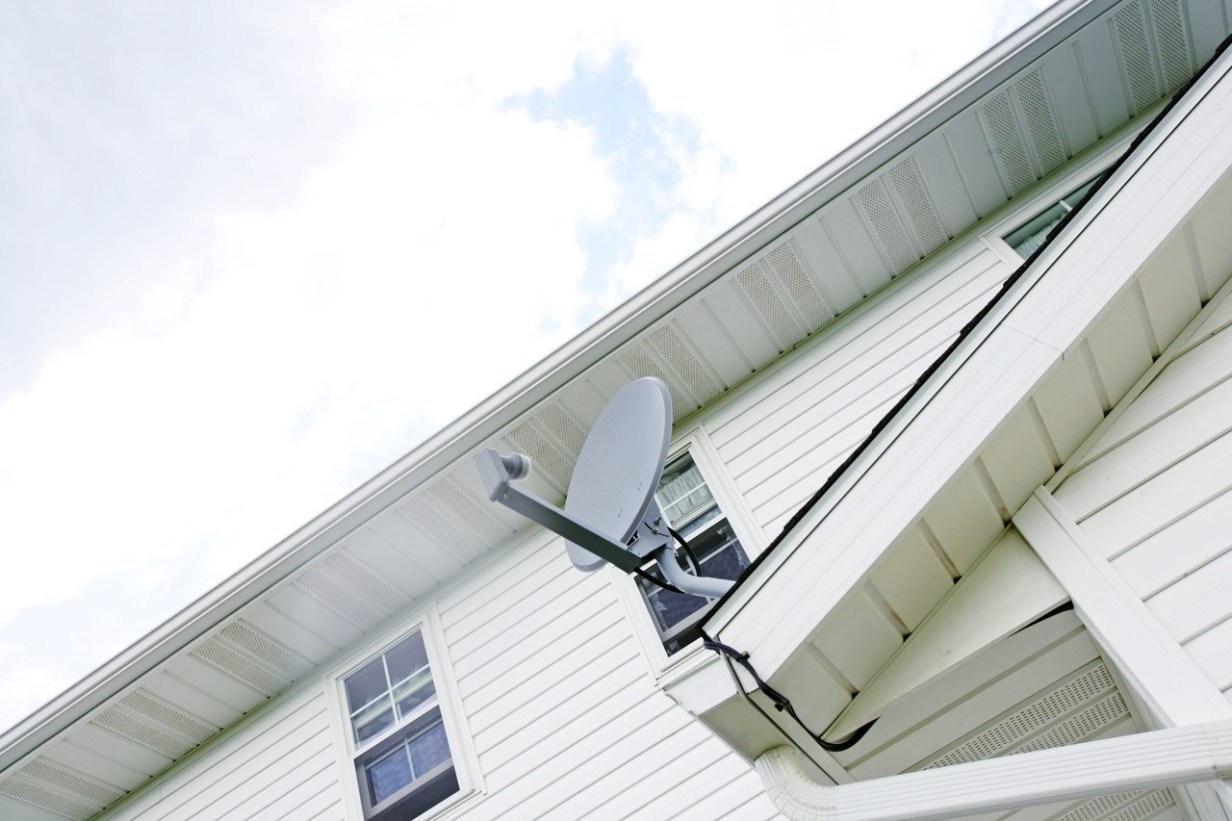Q, I keep reading that AT&T thinks DIRECTV and satellite TV doesn’t have much of a future. Do you think that’s right? Will there even be satellite dishes in a year or two? We have had DIRECTV for several years and would hate to do without it. — Ginny, Lorton, Virginia.
Ginny, AT&T is not bullish on the future of satellite TV. Although it owns DIRECTV, AT&T has decided to place its bets on streaming with the recent introduction of HBO Max and AT&T TV. That’s why multiple news reports say AT&T is exploring selling DIRECTV in the coming months, if not weeks.
But I believe that satellite TV will be around for at least several more years, although it won’t be as dominant in the marketplace as it was from the late 1990s to the first half of the 2010s. Streaming can be done cheaper so it’s here to stay, and it will dominate later this decade and beyond.
Here are the three reasons I think that satellite TV can continue to exist in an increasingly crowded and complex pay TV industry.
1. Rural Residents
Many rural residents have little or no access to high-speed Internet. Consequently, streaming is not an option for them, and in many areas, neither is cable TV. If they want to watch television, satellite TV is the only game in town.
The FCC this year estimated that 21 million rural Americans still lack access to high-speed Internet, although some believe the number is higher. If DIRECTV and Dish were to generate subscribers from this audience alone, they could stay in business for quite awhile.
2. Consumers Want a Cable TV Alternative
But the rural market is not the only lucrative market available to satellite TV providers. Many suburban residents who have access to high-speed Internet are not satisfied with live streaming services (YouTube TV, Sling TV, etc.) which often lack certain channels and technology features such as 4K TV. They prefer a premium TV service from cable or satellite; it may be more expensive, but they are willing to pay for the added convenience and entertainment. Satellite TV distributors can still generate a significant number of subscribers from this market.
3. The DIRECTV-Dish Merger Is Inevitable
As Dish Chairman Charlie Ergen often says, a merger between DIRECTV and Dish is inevitable. And when it happens, the company left standing (likely Dish) will have more subscribers and less competition. This will enable it to streamline resources, save money, and put greater pressure on programmers to reduce their carriage demands. For instance, if DIRECTV and Dish merged today, the new company would have nearly 25 million paying subscribers. Programmers would think twice before allowing their channels to be blacked out on a service with so many viewers.
This is why I think if Dish merged with DIRECTV, you would see fewer carriage disputes than you now see on Dish. Ergen and his team would have more leverage in negotiations and therefore would feel less need to use blackouts as a negotiating ploy.
Bottom line: AT&T seemingly wants to free itself from the satellite TV business. But it’s largely because the company wants to go in a different direction, not necessarily because it thinks the dish is dead, at least not in the near future. Under the right conditions, satellite TV can continue, and will likely continue, doing business for several more years.
Have a question about new TV technologies? Send it to The TV Answer Man at swann@tvpredictions.com. Please include your first name and hometown in your message.
— Phillip Swann


Here are of fewVERY HI PROBABILITIES that you can truly DEPEND ON…
DISH will NOT “BUY” Directv and will have NOTHING to do with the inept MORON ASSCLOWNS at AT&T…
TWO…
DISH WILL spend it’s time and energy on 5G and whether that pans out or not DIRECTV ill NOT be a part of DISH.
There ARE a few POSSIBILITIES to new owners of what is LEFT of DIRECTV but they have NOT been announced.
IN ANY EVENT NO company with the buying power to wrest DIRECTV from the ASSCLOWNS at AT&T will pay even close to ewhat AT&T thinks it can get and when AT&T files for bankrupt the options will be wide open and AT&T will have NOTHING left in any event.
Good Old Elon Musk is redefining satellite TV with a massive array of LEO satellites to provide high speed internet to the entire planet. ATT, COX COMCAST, VERIZON, DISH, CENTURY LINK, CHARTER, ALTICE – Watch out. Don’t count this guy out. He doesn’t just think outside the box, he escaped the box a long time ago and is not stuck inside one like the rest of the pack.
If There is a merger between Direct TV and Dish Network I feel sorry for anyone who currently subscribes to Direct TV because they will probably see their subscription costs triple to pay for the merger.
Love my satellite! I live in a rural area and have no other option. Streaming took over because it was “cheaper”. Well, most people have 5-10 subscriptions, and now are paying as much as they were with cable/satellite. I used to have a huge analog dish but converted to the digital dishes in the late 90s. I will never leave the satellite genre. It’s the only entertainment I have since I can only get so much high speed internet from Satellite internet.